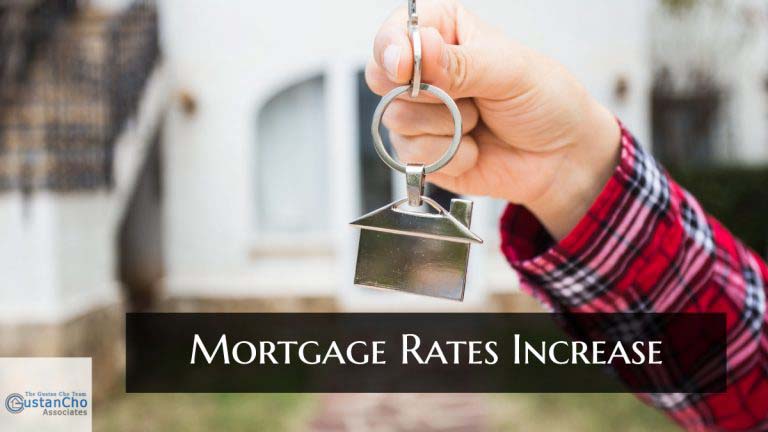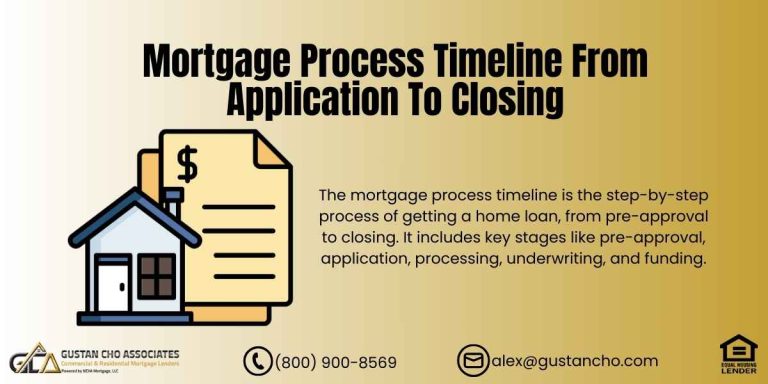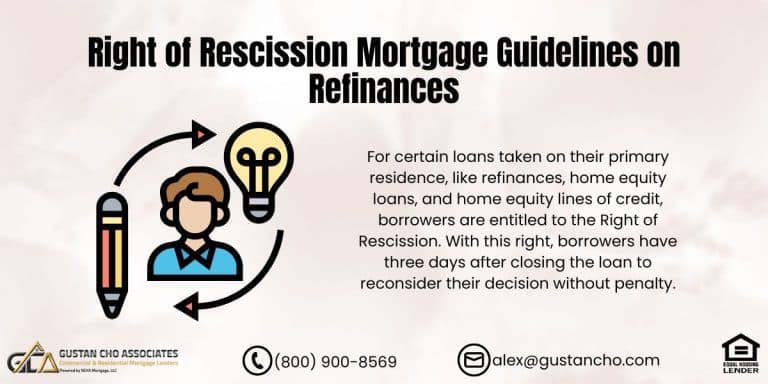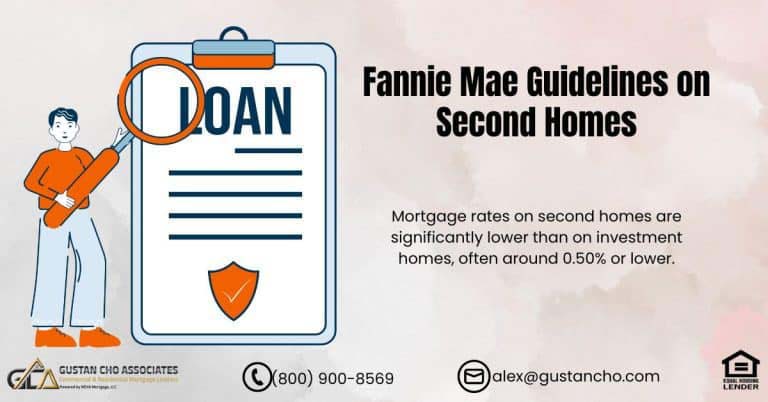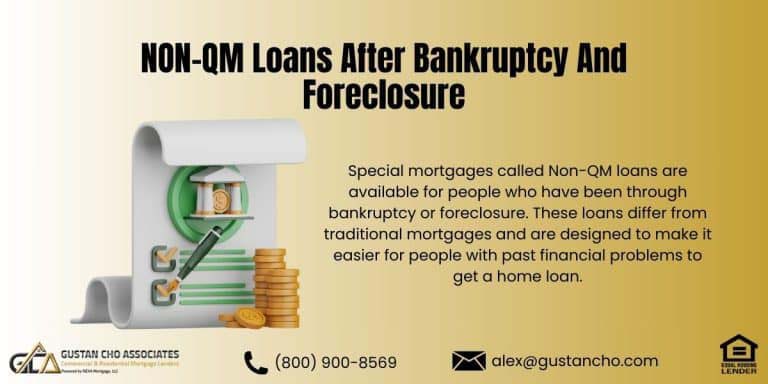This guide covers Florida mortgage rates on conventional loans vs FHA loans. Florida mortgage rates on conventional loans versus FHA loans are higher. On average, current Florida mortgage rates on conventional loans are 0.50% higher than FHA loans for borrowers with credit scores between 620 and 680 FICO. Florida mortgage rates on conventional loans depend on borrowers’ credit scores. Michael Gracz, a senior mortgage loan originator at Gustan Cho Associates, discusses FHA mortgage rates on conventional and FHA loans.
Most mortgage applicants think FHA loans are out of the picture just because they qualify for conventional loans. Borrowers who qualify for conventional loans automatically feel they need to go with a conventional mortgage.
This may not be in the borrower’s best interest, a homebuyer who qualifies for both Conventional and FHA loans. We must weigh the pros and cons of a conventional versus an FHA loan. Florida mortgage rates on Conventional loans are substantially higher for borrowers with credit scores under 680 FICO.
How HUD Insures Lenders on FHA Loans In Florida
Fannie Mae and Freddie Mac set the requirements for conventional loans. No government agencies guarantee Conventional loans. HUD, the Federal Housing Administration (FHA) parent, insures and backs FHA loans. HUD does not originate, process, underwrite, or fund FHA loans.
The role of HUD is to ensure and partially guarantee lenders if borrowers default on FHA loans that are originated and funded by private lenders.
Mortgage lenders have a sense of security with FHA Loans. As long as mortgage companies follow the minimum agency HUD Guidelines, mortgage lenders will be covered by HUD. For any borrowers who default on their FHA loans, HUD will partially cover the mortgage lender’s loss. However, lenders must ensure the borrower meets the minimum agency mortgage guidelines when originating and underwriting the borrower.
The Role of Fannie Mae and Freddie Mac on Conventional Loans
Florida Mortgage Rates on Conventional Loans depend highly on the risk the lender needs to take. Fannie Mae and Freddie Mac set conventional loan requirements. John Strange, a senior mortgage loan originator at Gustan Cho Associates, says the following about the role of Fannie Mae and Freddie Mac:
Conventional loans are often called conforming loans because they must meet Fannie Mae and Freddie Mac agency guidelines.
The Federal Housing Finance Agency (FHFA) regulates Fannie Mae and Freddie Mac. These are not government agencies; they are Government-Sponsored Enterprises (GSE). In the following paragraphs , we will compare Florida mortgage rates on conventional loans to FHA loans.
Compare Florida Mortgage Rates With Confidence
Wondering whether a Conventional or FHA loan is right for you? At Gustan Cho Associates, we help you find the best rates and programs for your unique situation.
The Importance of Fannie Mae and Freddie Mac: Florida Mortgage Rates on Conventional Loans
Fannie Mae and Freddie Mac are private mortgage giants regulated and semi-controlled by the Federal Housing Finance Agency (FHFA). These two mortgage giants are the largest buyers of mortgage loans from mortgage companies.
The role of Fannie Mae and Freddie Mac is to maintain liquidity in the mortgage markets by buying mortgage loans from lenders, so lenders have liquidity.
Lenders need liquidity in their warehouse line of credit to keep originating and funding mortgage loans. Due to Fannie Mae and Freddie Mac, mortgage companies can continue originating loans at low rates and have a smooth mortgage process.
Why Are Conventional Loans Called Conforming Loans
Many borrowers are confused about why conventional loans must conform to Fannie Mae and/or Freddie Mac agency mortgage guidelines if they are not backed by government agencies or GSEs like Fannie Mae or Freddie Mac.
HUD guarantees lenders against the loss sustained by borrowers if borrowers default on their FHA loans and go into foreclosure. Due to this guarantee by HUD, private lenders can offer low mortgage interest rates on FHA loans. This holds even though borrowers only put a 3.5% down payment.
Conventional loans need to conform to Fannie Mae and/or Freddie Mac GSE agency guidelines because Fannie Mae and/or Freddie Mac will not purchase any loans that do not conform to their agency mortgage guidelines. The role of Fannie Mae and/or Freddie Mac is to provide market stability by buying mortgage loans from lenders.
Florida Mortgage Rates on Conventional Loans: Mortgage Process
Mortgage lenders use their warehouse line of credit to originate and fund mortgage loans. Once they fund the loans, they must sell the mortgages they funded on the secondary market to pay down the warehouse line of credit.
Borrowers need to consider factors such as the cost of private mortgage insurance on credit scores under 680 FICO, compared to the annual FHA mortgage insurance premium of 0.55%.
The warehouse line of credit must be paid down for lenders to originate and fund more loans. If they do not sell the loans they funded, they will not have enough room to originate more loans. Fannie Mae and Freddie Mac are the biggest mortgage buyers in the United States.
How Mortgage Companies Price Florida Mortgage Rates on Conventional Loans
Since the federal government does not insure Conventional Loans, pricing on Florida Mortgage Rates on Conventional Loans, lenders are more strict on credit/income requirements and the borrower’s ability to repay. As of September 22, 2025, Florida remains a magnet for homebuyers, thanks to its palm-lined coast, busy economy, and varied neighborhoods. If you plan to buy a home in the state, knowing the differences in rates between conventional and FHA loans is key.
Conventional loans offer adaptable terms for qualified buyers, while FHA loans help many first-timers afford their first Florida home. Let’s look at today’s rates, the main loan terms, and smart moves to get the best mortgage.
Lenders do not have a government agency to back and insure conventional loans. Mortgage companies need to weigh the layered risk factors on borrowers with lower credit scores, higher debt-to-income ratios, past payment history, bad credit, late payments, job stability, and payment patterns.
Florida Mortgage Rates on Conventional Loans: Loan Level Pricing Adjustments
Lenders have set the pricing on conventional loans for prime borrowers. Prime borrowers have at least a 740 credit score, 20% down payment, a lower debt-to-income ratio, and a perfect timely payment history. Lenders have pricing hits on several factors, including the borrower’s layered risk factors.
Florida mortgage rates on conventional loans are dependent on loan-level pricing adjustments on the following factors:
- borrowers’ credit scores
- There are tiers of pricing adjustments based on the borrower’s credit scores
- The lower the credit scores, the higher the mortgage rates on conventional loans
- type of property
- loan-to-value
- automated underwriting system findings
- ability to qualify for private mortgage insurance
- the amount of down payment borrowers put down on their home purchase
- borrowers ‘ debt-to-income ratio
Florida Mortgage Rates on Conventional Loans vs. FHA Loans in 2025
Check Florida mortgage rates for conventional and FHA loans in September 2025. Rates start at 5.99%, and this guide covers down payments, credit scores, and tips for the best Florida home loan.
Florida Mortgage Rates on Conventional Loans vs FHA Loans: Florida Housing Market in 2025
As of September 22, 2025, Florida remains a magnet for homebuyers, thanks to its palm-lined coast, busy economy, and varied neighborhoods. If you plan to buy a home in the state, knowing the differences in rates between conventional and FHA loans is key. Conventional loans offer adaptable terms for qualified buyers, while FHA loans help many first-timers afford their first Florida home. Let’s look at today’s rates, the main loan terms, and smart moves to get the best mortgage.
Conventional Loans in Florida
Conventional loans are the most frequently used type of mortgage in the state. These loans come from private sources, primarily Fannie Mae and Freddie Mac. They’re best for buyers with solid credit who want to avoid the extra premiums that often come with FHA insurance. Conventional rates start around 5.99%, and buyers can select from fixed, adjustable, or other terms that fit their long-term plans.
What Are Conventional Loans?
Conventional loans fall into the private sector, meaning neither the government nor FHA underwrites them. If you put less than 20% down, private mortgage insurance (PMI) kicks in, adding a monthly cost. In Florida, folks use conventional loans to buy single-family homes, condos, and even some investment properties. You can lock in a fixed rate, opt for an adjustable rate, or choose a loan that doesn’t hit your wallet with an upfront mortgage insurance premium. For 2025, conforming loans cap at $806,500 in most counties and even more in high-cost areas like Miami-Dade.
Current Florida Mortgage Rates on Conventional Loans
As of September 22, 2025, conventional mortgage rates in Florida hold steady in a slightly calming economy. If your credit shines, you can snag a 30-year fixed rate around 6.10%, with a few lenders dropping to 5.99%. In the short term, expect 15-year loans to be near 5.75% and a 20-year fixed loan to be around 6.00%. Your rate shifts with the lender, your credit score, and the property’s zip code—coastal areas like Tampa or Orlando might carry a slight premium, reflecting the insurance boosts after hurricane season.
Get the Best Mortgage Rates in Florida
Whether it’s Conventional or FHA, we’ll shop the market to secure the most competitive rates — with no overlays.
Exploring FHA Loans in Florida
FHA loans, backed by the Federal Housing Administration, target borrowers with modest credit profiles and down payments. Even a 3.5% down payment is enough if your score is in the mid-600s. In Florida, first-time buyers particularly gravitate to them, with strong popularity in Central Florida’s smaller cities, where monthly payments can fit even lean budgets.
What Are FHA Loans?
FHA loans only ask for a 3.5% down payment if your credit score is 580 or above; if it’s 500 to 579, you need 10% down. Payments also cover mortgage insurance premiums (MIP), which can be rolled into the loan. In Florida, the loan limit varies by county—for example, a single-family home in many areas caps at $557,750. The program also works for manufactured homes and renovations through the 203(k) loan, letting you buy or fix a property under one roof.
Current Florida Mortgage Rates for FHA Loans
As of September 22, 2025, the FHA rate in Florida sits around 6.35% for a 30-year fixed mortgage, with some credit unions offering as low as 5.625% in certain cases. Generally, FHA loans carry 0.25% to 0.50% higher rates than conventional loans because mortgage insurance premiums are included. Nevertheless, the easier credit and debt-to-income requirements may outweigh the slightly higher rate. For refinancing, the rate is about 7% now, giving you a chance to adjust your loan if the market changes soon.
Comparing Florida Mortgage Rates on Conventional Loans vs FHA Loans
Consider your credit and finances to determine whether a Florida conventional or FHA loan is better. Conventional loans are cheaper for people with excellent credit. In contrast, FHA loans may suit first-time buyers or those with a spotty history because they require a lower down payment and have more flexible rules.
Interest Rate Differences
30-year fixed conventional mortgages in Florida are tracking around 6.10%, while FHA loans are pegged at 6.35%. That same 0.25% disparity, when stretched over 30 years on a $300,000 mortgage, translates to about $15,000 in potential interest savings for the conventional path. Still, FHA rates can sneak below conventional on subprime credit, so always shop both quotes side by side.
Down Payment Requirements
Once the dust settles, FHA edges out on the down payment hurdle for buyers who can only scrape together a small nest egg. The minimum is 3.5%, typically outshined by conventional, where 3% to 5% is the rule, and PMI applies at any threshold below 20%. For the $400,000 median-price market in Florida, FHA buyers put down only $14,000, a great fit for aspiring millennial homeowners.
Credit Score Impacts
To snag a conventional par rate, a 620 credit score enlightened the best deal, but FHA gives the green light at 500. The hitch is that weak credit in the conventional world can tack on a 0.5% to 1% surcharge. Yet, FHA’s mortgage insurance premium (MIP) mutes the disparity, letting the lower FICO crew end up with similar monthly payments in many cases.
Closing Costs and Fees
Total closing fees still hover around 2% to 5% for both. Conventional loans bypass FHA’s 1.75% upfront MIP, translating into savings of $5,250 on a $300,000 deal. Nevertheless, private mortgage insurance (PMI) on conventional loans that fall below 20% down levies 0.5% to 1% yearly. Florida tack-ons, like documented stamps, contribute an extra $0.70 for every $100 borrowed to both scenarios and can’t be ignored.
Factors Influencing Florida Mortgage Rates Florida Mortgage Rates on Conventional Loans vs FHA Loans
Loan rates on conventional and FHA products in Florida are influenced by broad national bond movements paired with localized economic indicators. Staying plugged into trends and key indicators can position you to lock in a better deal at the optimal timeframe.
Economic Factors
Mortgage rates continue to move according to wider economic signals. The Federal Reserve began to cut benchmark rates in early 2025, lowering averages that had peaked in June the previous summer. Inflation and job-growth numbers remain key—Florida’s tourism sector, for example, has added tens of thousands of payroll positions, which keeps long-term rates comfortable.
Local Florida Market Trends
Hurricane season and high homeowners’ premiums still push rates in coastal counties. Areas like Broward County see premiums climb another 0.10% to 0.20% this month. Inland spots like Gainesville maintain steadier rates in the 5.90% to 6.20% range. Lasting South Florida inventory shortages also drive buyers to lock in earlier, which keeps rates steady for quality borrowers.
How to Get the Best Florida Mortgage Rate
Bring your best financial profile to the table to score the best rates on Florida conventional loans. Collect at least this summer’s W-2, check your credit, and compare at least three lenders. Programs like the Hometown Heroes initiative also provide lower mortgage rates for Florida veteran buyers.
Tips for Conventional Loans
- Raise your credit score to 740 or higher, the last tier that triggers the steepest contango of discounts.
- Put 20% down to dodge the monthly PMI and cut the monthly payment.
Lock the rate for 45 to 60 days when markets are jumpy. Some lenders now offer rate rollbacks in the event of drops.
- Compare fixed loans on a Florida-based calculator, or use Bankrate.com for apples-to-apples quotes.
Tips for FHA Loans
- A streamlined FHA refinance helps borrowers cut costs when switching from a conventional loan.
- Remember the 11-year MIP fade—10% or higher equity allows the policy to fall off at the 11-year mark.
- Work with Florida HUD-participating housing counseling services to verify eligibility.
- Local credit unions are presenting 5.625% fixed deals for FHA buyers, making this the month to move.
Don’t Wait—Lock in the Right Loan for You
Rates can change quickly. Find out if FHA or Conventional is your best fit and lock in your mortgage today.
Florida-Specific Programs to Lower Mortgage Rates
Programs like Florida Assist provide down payment help, which works great alongside FHA loans. Using these grants, homebuyers can sometimes lower their mortgage rates by as much as 1.00%.
Private Mortgage Insurance On Conventional Loans Versus FHA Loans
Private mortgage insurance on conventional loans is not required if homebuyers make a 20% down payment or if homeowners refinance their homes with at least an 80% LTV.
Pricing on private mortgage insurance on conventional loans is set at a fixed factor, like the FHA Annual 0.55% Mortgage Insurance Premium.
Private mortgage insurance companies set the pricing on private mortgage insurance on a case-by-case basis, depending on many factors. They can deny mortgage insurance for any borrower if they think the borrower is considered a bad risk.
The Role of Private Mortgage Insurance Companies on Conventional Loans
Private insurance companies (PMI companies) cover lenders’ losses if borrowers default on conventional loans. These companies are similar to government-backed agencies like HUD, VA, and USDA.
Government agencies insure government-backed mortgages. Conventional loans need mortgage insurance from private mortgage insurance companies.
This is why every conventional loan borrower will get a different rate on private mortgage insurance based on their credit risk.
Mandatory Mortgage Insurance Premium Requirement on FHA Loans
HUD requires a one-time 1.75% FHA mortgage insurance premium and a lifetime 0.55% annual mortgage insurance premium that is escrowed by the lender and amortized monthly. The annual FHA MIP is paid monthly and escrowed yearly by the mortgage servicer.
Every borrower pays the one-time upfront FHA mortgage insurance premium of 1.75% which is rolled into the FHA loan balance.
The Annual FHA mortgage insurance premium is 0.55% for all Borrowers on a 30-year fixed-rate FHA Mortgage. This holds no matter what the borrowers’ credit scores are. The annual FHA mortgage insurance cannot be cancelled, regardless of the loan-to-value. The only way the annual mortgage insurance premium can be canceled is by refinancing the existing FHA loan or when the homeowner sells the home. The private mortgage insurance can be canceled on conventional loans when the loan-to-value falls below 80% LTV.
Conventional Private Mortgage Insurance Requirement Versus FHA MIP
Fannie Mae and Freddie Mac do not require private mortgage insurance for the entire term of a conventional loan if the loan-to-value falls below 80% LTV. Christy Hembree, a senior mortgage loan originator, says the following: Conventional private mortgage insurance requirements versus FHA mortgage insurance premiums:
HUD mortgage insurance premium on FHA loans is fixed. The annual mortgage insurance premium is a fixed amount of 0.55% regardless of the borrowers’ credit scores or loan-to-value.
One of the main advantages of Conventional Loan Financing is that there is no mandatory monthly mortgage insurance for borrowers who put a 20% down payment on a home purchase or homeowners refinancing their home loan with at least an 80% LTV. Homeowners can request the elimination of private mortgage insurance if they think they have 20% or more equity.
How Can Homeowners Cancel Private Mortgage Insurance on Conventional Loans
An appraisal is required to determine the property’s value if the homeowner requests to eliminate private mortgage insurance. Christy Hembree, a senior mortgage loan originator at Gustan Cho Associates, says the following about comparing Florida mortgage rates on conventional loans versus FHA loans.
No private mortgage insurance is required for homeowners refinancing their homes with a conventional loan and having 20% or more equity.
Private mortgage insurance is mandatory for homes with a loan-to-value (LTV) higher than 80%. The private mortgage insurance company sets the price depending on the borrower’s risk factor.
No Upfront Mortgage Insurance Premium on Conventional Loans
FHA borrowers pay an upfront mortgage premium of 1.75% of the loan amount. The upfront FHA MIP can be rolled into the balance of the FHA Loan. Borrowers also have an annual FHA mortgage insurance premium of 0.55%. Homeowners need to pay for the term of the 30-year fixed-rate mortgage on their FHA Loans.
The annual FHA MIP is amortized in 12 equal monthly payments. It is escrowed and part of the borrower’s monthly mortgage payment. FHA mortgage insurance cannot be canceled with the new laws that will take effect in June 2013.
Even if the FHA mortgage falls below 78% loan-to-value, you are still stuck with paying mortgage insurance for the life of the loan. Florida mortgage rates on conventional Loans are generally higher than FHA mortgage rates.
Pros and Cons of FHA Loans versus Conventional Loans
FHA mortgages have many advantages and are a great program for homebuyers with prior bankruptcy and foreclosures. Borrowers can qualify for an FHA mortgage loan with a prior bankruptcy if the bankruptcy has been discharged for at least two years.
Conventional loans are the most frequently used type of mortgage in the state. These loans come from private sources, primarily Fannie Mae and Freddie Mac.
They’re best for buyers with solid credit who want to avoid the extra premiums that often come with FHA insurance. Conventional rates start around 5.99%, and buyers can select from fixed, adjustable, or other terms that fit their long-term plans. Fannie Mae and Freddie Mac have a four-year waiting period for borrowers to qualify for Conventional Loans after a Chapter 7 Bankruptcy discharge date. Mortgage applicants can qualify for an FHA mortgage three years after the recorded foreclosure date, deed-in-lieu of foreclosure, or short sale.
Pros and Cons of Conventional Loans versus FHA Loans
For Conventional Loans, borrowers must wait at least four years after a short sale and/or deed-in-lieu of foreclosure to qualify. There is a mandatory waiting period of four years after a deed instead of foreclosure and/or short sale to qualify for a conventional loan. The waiting period to qualify for conventional loans after a standard foreclosure is seven years from the recorded foreclosure date.
Conventional Loan First-Time Homebuyers Down Payment Requirements
The minimum credit score for first-time home buyers to qualify for a 3% down payment conventional loan is 620 FICO. A first-time homebuyer is a buyer who has not owned a home in the past three years.
A 620 credit score on conventional loans is considered very low. Borrowers with a 620 credit score may have very high rates and may need to pay discount points.
Private mortgage insurance companies may not even insure borrowers with 620 credit scores on conventional loans if they do not have strong compensating factors and strong reserves. Getting an approved/eligible per the automated underwriting system with a 620 credit score on conventional loans will be difficult.
Conventional Loans Minimum Down Payment Requirements for Home Purchase
5% down payment for a seasoned home buyer. A 3% down payment is not for a homebuyer with any interest in a home in the past three years. Fannie Mae and Freddie Mac consider first-time homebuyers as those who did not own a home for at least three years, but can have had ownership before. Private mortgage insurance is required for any homebuyer who does not put a 20% down payment.
FHA Loan Requirements for Down Payment on Home Purchase
The minimum credit score required to qualify for a 3.5% down payment FHA Loan is 580 FICO. Homebuyers can qualify for FHA Loans with credit scores under 580 FICO and down to 500 FICO if they put a 10% down payment. Prior bankruptcies, foreclosures, deeds instead of foreclosures, and short sales have nothing to do with mortgage rates. There are no pricing adjustments for borrowers with prior bankruptcy, housing events, or prior bad credit on both conventional and/or FHA loans.
Secure Your Florida Conventional Loan
Whether you’re buying a first home or refinancing, we make it easy to lock in a low Conventional rate in Florida.
Having a Mortgage Included in Bankruptcy on Conventional Loans versus FHA Loans
Homebuyers who had a mortgage or multiple mortgages as part of their Chapter 7 Bankruptcy can qualify for a conventional loan four years from the discharge date of their Chapter 7 Bankruptcy. This holds as long as the deed transfer to the property has been finalized.
What this means is the following:
- that the waiting period starts from the discharge date of the Chapter 7 bankruptcy
- and the property that was included in the bankruptcy could have been finalized through foreclosure, deed instead of foreclosure, or short sale after the discharge date
- and that has no impact on qualifying for a Conventional Loan
This is not the case with FHA loans. With FHA loans, homebuyers who had a mortgage or mortgages as part of their Chapter 7 Bankruptcy have a waiting period of three years from the recorded date of the foreclosure, deed-in-lieu of foreclosure, or short sale. The waiting period on conventional loans is after the discharge date of the Chapter 7 Bankruptcy, and not the date of the housing event.
Homebuyers interested in qualifying for mortgage loans in Florida or any of the states Gustan Cho Associates is licensed in and want to see the best rates they are eligible for, please get in touch with us at Gustan Cho Associates at 800-900-8569 or text us for a faster response. Or email us at gcho@gustancho.com. The team at Gustan Cho Associates is available 7 days a week, evenings, weekends, and holidays. We have competitive Florida mortgage rates on conventional loans. Gustan Cho Associates are direct lenders with our own mortgage underwriters and can get borrowers same-day approval on conventional and government loans.
FAQ: Florida Mortgage Rates on Conventional Loans vs FHA Loans
What Are the Current Average Florida Mortgage Rates on Conventional Loans in September 2025?
- As of September 22, 2025, the average 30-year fixed mortgage rate for conventional loans in Florida stands at 6.10%.
- Some of the biggest lenders are offering rates as low as 5.99%.
Are FHA Loan Rates Higher Than Conventional in Florida?
- In most cases, yes.
- FHA loan rates average 6.35% compared to 6.10% for conventional loans.
- However, for borrowers with credit scores below 680, the FHA rate can sometimes be the better choice because the guidelines are more forgiving.
Can I Switch From an FHA Loan to a Conventional Loan in Florida?
- You can.
- Once you have at least 20% equity in the home, you can use a streamline refinance.
- This can lower your rate and remove the monthly mortgage insurance premium, known as MIP.
- Speak with a Florida lender for the numbers that matter to you.
What Credit Score Do I Need For the Best Florida Mortgage Rates on Conventional Loans?
- To snag the lowest rates, target a score of 740 or higher, usually below 6.00%.
- If your score is between 620 and 739, you can still find competitive loans at 6.25%.
How Do Down Payments Affect Florida Mortgage Rates on Conventional vs FHA loans?
- A smaller down payment bumps your monthly payment from either PMI on conventional loans or MIP on FHA loans.
- FHA requires a minimum down payment of 3.5%, keeping the upfront cost reasonable and not increasing the rate as notably as a smaller conventional down payment would.
Get the Best Conventional Loan Rates in Florida
Looking for the lowest rates on Conventional Loans? At Gustan Cho Associates, we shop the market for you — with no overlays and competitive terms.




